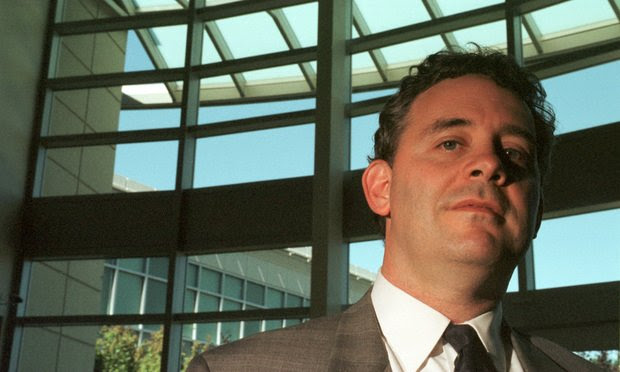Skilled in the Art: Judge Busts Novel FRAND Theory | Unified Weighs In on Video Codec Royalties | Still No Gusher From Oil States
Judge Cathy Ann Bencivengo wasted little time in ruling against u-blox's bid to enjoin InterDigital Inc. from contacting its customers while the court determines a fair, reasonable and nondiscriminatory rate.
February 01, 2019 at 04:21 PM
10 minute read
Welcome to Skilled in the Art. I'm Law.com IP reporter Scott Graham. Sometimes you can listen to an hourslong hearing and not have any idea how a judge is going to rule. Other times, you have the answer in the first 10 seconds. Thursday was one of the latter. Judge Cathy Ann Bencivengo was not coy at all about a high-profile FRAND royalty dispute that's caught the eye of the Justice Department. I've got some blow-by-blow below. Plus, a second opinion on Unified Patents' HEVC royalty study, and some thoughts on two Oil States aftermath cases. As always you can email me your thoughts and follow me on Twitter.
 David Steuer, Wilson Sonsini Goodrich & Rosati partner
David Steuer, Wilson Sonsini Goodrich & Rosati partner
First Round in New FRAND Battle Goes to InterDigital
Judge Cathy Ann Bencivengo got right to the point Thursday morning. “I have to say I'm unimpressed with the motion,” is how she kicked off a hearing in San Diego in the latest high-profile dispute over FRAND royalties.
Thirty minutes later, the movant in question—u-blox, a Swiss developer of cellular modules for connected devices—had lost its bid to enjoin InterDigital Inc. from contacting its customers while the court determines a fair, reasonable and nondiscriminatory rate.
“You just want to practice the patents without a license in the hope that you'll reach a deal later,” Bencivengo told Sheppard, Mullin, Richter & Hampton partner Steve Korniczky, who represents u-blox.
Ninety miles up Interstate 5, Korniczky's team enjoyed a big success in Judge James Selna's courtroom in the 2017 FRAND case TCL Communication v. Ericsson. But on Thursday they ran into a buzzsaw, as Bencivengo resoundingly sided with InterDigital and Wilson Sonsini Goodrich & Rosati—not to mention the Justice Department, which submitted not one but two filings critiquing u-blox's position.
U-blox sued InterDigital on New Year's Day as its license to InterDigital's 2G, 3G and 4G patents expired. The company stresses it will accept whatever rate Bencivengo determines to be FRAND. But the last time u-blox's license expired, InterDigital coerced it into accepting supra-FRAND rates by warning two of its suppliers that they were no longer covered by u-blox's license. Without an injunction, the company will again be forced to choose between paying “exorbitant” rates and risking the loss of customers, Korniczky argued Thursday.
Wilson Sonsini partner David Steuer has argued that InterDigital has aconstitutional right to truthfully tell u-blox's customers they may no longer be licensed. The Justice Department's antitrust division, led by FRAND skeptic Makan Delrahim, cautioned that u-blox was misapplying antitrust law. U-blox tried to shake off DOJ by withdrawing its antitrust claim, but DOJ filed another statement. This time it said “it is the United States' view that it would unhelpfully distort licensing negotiations if patent implementers like u-blox could effectively negate the statutory right to exclude under patent law through court order whenever a patent holder makes a FRAND commitment.”
That's about where Bencivengo ended up. She said she saw “zero evidence” in the record of any campaign of harassment. InterDigital's outreach to a couple suppliers might make u-blox uncomfortable, “but I don't know that that's a legal ground to stop them from enforcing their patents,” she said.
And just as u-blox doesn't want to pay supra-FRAND rates, InterDigital shouldn't have to forgo payments to which it's entitled during the two or three years it takes to litigate the rate. “Hold-up or hold-out, either way you're both in the same position,” she told Korniczky.
The judge said she'll issue a written order denying the injunction based on all four eBay elements. She invited the parties to jointly propose a special master to take evidence on the FRAND royalty issue and submit a report and recommendation.
Wilson Sonsini's winning team included partners partners Michael Levin and Maura Rees and of counsel Natalie Morgan.
Unified Tries to Lower the Ceiling on HEVC Royalties
Also on the FRAND front, Unified Patents has commissioned a study of standard-essential patent royalties in the video codec space. Unified engaged Sheppard partner Martin Bader, who helped Korniczky litigate the TCL Communications and u-blox cases, and Edgeworth Economics consultant Mario Lopez to develop “a methodology grounded in economic theory, real-world data, and recent legal decisions.”
They concluded that the total per-unit royalty on HEVC patents should most likely fall between $0.08 and $0.28 per unit. That's much less, Unified says, than the $0.20 to $1.50 that HEVC/H.265 patent pools such as MPEG-LA, HEVC Advance and Velos Media charge.
I would expect nothing less from Unified, which zealously represents the interests of technology implementers. So I reached out to Jay Jurata of Orrick, Herrington & Sutcliffe, whose firm has staked out a middle ground position for amicus Panasonic in the TCL case.
“I do think it's an important contribution,” Jurata said of the Unified study. “Right now we don't have much out there to assist companies in assessing royalties in HEVC.”
Jurata said Unified's estimate of the aggregate royalty for all HEVC SEPs will help provide some framework for licensing discussions. Within that aggregate, values will vary depending on, among other things, whether the patented technology was “a crown jewel” or just one of many available alternatives. “Quality does matter,” Jurata said. “This is not a simple counting exercise.”
The previous H.264 standard was adopted more quickly because MPEG-LA controlled some 80 percent of the patents essential to that standard, Jurata said. “The fracturing of the pools is kind of holding [HEVC] back,” he said. “There's just not a lot of information out there.”
Oil States Follow-Up Fizzles Out
It was just one year ago that half of the patent bar was freaking out and the other half fantasizing about what the Supreme Court might do to the Patent Trial and Appeal Board in the Oil States case. The court, as we now know, held that patents are a public right that the government can cancel without an Article III proceeding.
But the decision also came with a few big caveats. Justice Clarence Thomas' opinion emphasized “the narrowness of our holding” and explicitly reserved the issue of retroactive application of the America Invents Act. Employing a triple negative, Thomas added that “our decision should not be misconstrued as suggesting that patents are not property for purposes of the Due Process Clause or the Takings Clause.”
This week the Court of Federal Claims took one of the first stabs at deciphering those caveats, and next week the Federal Circuit will get a chance to do the same.
In Christy v. United States, COFC Chief Judge Margaret Sweeney dismissed a putative class action alleging the government had breached its contracts with patent owners and taken their property without just compensation.
Sweeney observed that the Supreme Court ruled in 1894 that a patent is not property for purposes of the Takings Clause, and that the Federal Circuit affirmed that that decision “remains the law” as recently as 2006. “In short, patents are public franchises, not private property,” Sweeney wrote. Therefore, patent rights “are not cognizable property interests for Takings Clause purposes.”
As for the contract claims, the Federal Circuit's predecessor court has held that “a patent is not a contract” and that any notion to the contrary is “a popular myth.”Neither the Federal Circuit nor the Supreme Court in Oil States overruled those decisions, Sweeney wrote.
Ropes & Gray partner Matt Rizzolo, who wrote about the Takings issue here last spring, called it “a nuanced and difficult question.” He said the Christy decision “arguably runs contrary to a number of Supreme Court cases—some of which characterize patents as private property, and others addressing the application of the Takings Clause to public franchise rights like taking tolls and distributing electricity.”
Meanwhile, the Federal Circuit will hear a series of appeals next week that raise similar issues. Trading Technologies Inc., which holds patents on user interfaces for electronic securities trading, argues that the America Invents Act violates the Fifth Amendment by retroactively depriving the company of its property in a non-Article III forum without a jury.
The Federal Circuit certified the constitutional challenge to the Justice Department last summer. DOJ argues that the AIA didn't “newly expose patents to the prospect of post-issuance patent review.” When Trading Technologies obtained its patents in the early 2000s, they were already subject to ex-parte reexamination, the government says.
Baker & Hostetler partner Michael Gannon will make Trading Technologies' case to the Federal Circuit. Byron Pickard of Sterne Kessler Goldstein & Fox represents PTAB petitioner Interactive Brokers. Katherine Twomey Allen of DOJ's civil division will argue for the United States.
Donaldson Firm Brings in Superman's Lawyer
 NELSON
NELSONWarner Bros. senior IP counsel Dale Nelson is joining Donaldson + Callif as a partner after 27 years with the studio. L.A.-based Donaldson represents independent producers of film, television and web-based content, with a focus on clearance.
“Dale's longevity and expertise in the intellectual property space will be an invaluable asset to our practice,” partner Michael Donaldson said in a written statement.
Nelson was legal counsel for some of Warner Bros.' best-known properties, including Harry Potter, Looney Tunes, Lord of the Rings, and DC Comics properties such as Superman and Batman. “I'm grateful to be joining this talented team and be a part of the independent film industry's massive growth,” she said.
Womble Walks Into Houston
Womble Bond Dickinson has launched a new office in Houston. IP transactions lawyer Jeffrey Whittle, who is joining the firm from Hogan Lovells, will serve as managing partner of the office, my ALM colleague Brenda Sapino Jeffreys reports. IP litigator Joshua Davis is among a group of four attorneys who have joined the office from Reed Smith.
Houston is Womble Bond's 27th location. The firm expects the office to grow to 20 lawyers this year.
“I've been across deals and litigation with Womble attorneys, and I have a lot of respect for them and their talent set and capabilities,” Whittle said.
McKool Lawyer Joins Noroozi
Santa Monica IP shop Noroozi PC has added patent litigator Karly Valenzuela from McKool Smith.
Kayvan Noroozi reports that Valenzuela already has four trials under her belt in five years of practice. She was a member of Rovi's trial team in a recent ITC investigation, and represented ContentGuard and BMC Software in trials before the Eastern District of Texas.
“Karly's passion for trials and extensive trial experience positions the firm to expand its trial practice,” Noroozi said in an emailed announcement. “I am thrilled to welcome Karly as a colleague.”
Latham Wraps Up Biotech Win
Earlier this week I reported that Janssen Biotech and a team of Latham & Watkins attorneys invalidated three patents that had been asserted against the company's $2 billion blood cancer biologic drug Darzalex.
U.S. District Judge Leonard Stark granted summary judgment on Jan. 25. On Thursday, the parties formally settled all remaining claims, including Janssen's counterclaim for inequitable conduct.
Latham's team was led by Michael Morin, global co-chair of the firm's IP litigation practice.
That's all from Skilled in the Art for this week. I'll see you all again on Tuesday.
This content has been archived. It is available through our partners, LexisNexis® and Bloomberg Law.
To view this content, please continue to their sites.
Not a Lexis Subscriber?
Subscribe Now
Not a Bloomberg Law Subscriber?
Subscribe Now
NOT FOR REPRINT
© 2025 ALM Global, LLC, All Rights Reserved. Request academic re-use from www.copyright.com. All other uses, submit a request to [email protected]. For more information visit Asset & Logo Licensing.
You Might Like
View All
Skilled in the Art With Scott Graham: I'm So Glad We Had This Time Together

Design Patent Appeal Splinters Federal Circuit Panel + Susman Scores $163M Jury Verdict + Finnegan Protects Under Armour's House
Trending Stories
- 1DC Circuit Keeps Docs in Judge Newman's Misconduct Proceedings Sealed
- 2Litigators of the Week: US Soccer and MLS Fend Off Claims They Conspired to Scuttle Rival League’s Prospect
- 3Litigator of the Week Runners-Up and Shout-Outs
- 4U.S.- China Trade War: Lawyers and Clients Left 'Relying on the Governments to Sort This Out'
- 5Willkie Adds Five-Lawyer Team From Quinn Emanuel in Germany
Who Got The Work
J. Brugh Lower of Gibbons has entered an appearance for industrial equipment supplier Devco Corporation in a pending trademark infringement lawsuit. The suit, accusing the defendant of selling knock-off Graco products, was filed Dec. 18 in New Jersey District Court by Rivkin Radler on behalf of Graco Inc. and Graco Minnesota. The case, assigned to U.S. District Judge Zahid N. Quraishi, is 3:24-cv-11294, Graco Inc. et al v. Devco Corporation.
Who Got The Work
Rebecca Maller-Stein and Kent A. Yalowitz of Arnold & Porter Kaye Scholer have entered their appearances for Hanaco Venture Capital and its executives, Lior Prosor and David Frankel, in a pending securities lawsuit. The action, filed on Dec. 24 in New York Southern District Court by Zell, Aron & Co. on behalf of Goldeneye Advisors, accuses the defendants of negligently and fraudulently managing the plaintiff's $1 million investment. The case, assigned to U.S. District Judge Vernon S. Broderick, is 1:24-cv-09918, Goldeneye Advisors, LLC v. Hanaco Venture Capital, Ltd. et al.
Who Got The Work
Attorneys from A&O Shearman has stepped in as defense counsel for Toronto-Dominion Bank and other defendants in a pending securities class action. The suit, filed Dec. 11 in New York Southern District Court by Bleichmar Fonti & Auld, accuses the defendants of concealing the bank's 'pervasive' deficiencies in regards to its compliance with the Bank Secrecy Act and the quality of its anti-money laundering controls. The case, assigned to U.S. District Judge Arun Subramanian, is 1:24-cv-09445, Gonzalez v. The Toronto-Dominion Bank et al.
Who Got The Work
Crown Castle International, a Pennsylvania company providing shared communications infrastructure, has turned to Luke D. Wolf of Gordon Rees Scully Mansukhani to fend off a pending breach-of-contract lawsuit. The court action, filed Nov. 25 in Michigan Eastern District Court by Hooper Hathaway PC on behalf of The Town Residences LLC, accuses Crown Castle of failing to transfer approximately $30,000 in utility payments from T-Mobile in breach of a roof-top lease and assignment agreement. The case, assigned to U.S. District Judge Susan K. Declercq, is 2:24-cv-13131, The Town Residences LLC v. T-Mobile US, Inc. et al.
Who Got The Work
Wilfred P. Coronato and Daniel M. Schwartz of McCarter & English have stepped in as defense counsel to Electrolux Home Products Inc. in a pending product liability lawsuit. The court action, filed Nov. 26 in New York Eastern District Court by Poulos Lopiccolo PC and Nagel Rice LLP on behalf of David Stern, alleges that the defendant's refrigerators’ drawers and shelving repeatedly break and fall apart within months after purchase. The case, assigned to U.S. District Judge Joan M. Azrack, is 2:24-cv-08204, Stern v. Electrolux Home Products, Inc.
Featured Firms
Law Offices of Gary Martin Hays & Associates, P.C.
(470) 294-1674
Law Offices of Mark E. Salomone
(857) 444-6468
Smith & Hassler
(713) 739-1250











